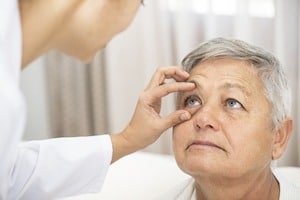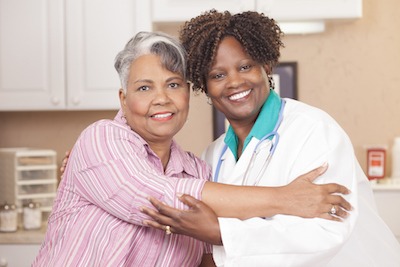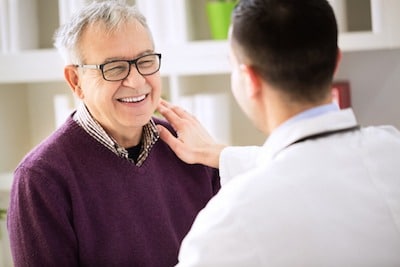Written by Olivia Cohen
At American In-Home Care, we believe that getting old is a privilege and that the Golden Years should truly shine. As our bodies age, we often need help with daily functioning and tasks; however, that shouldn’t prevent us from doing the things we love. Quality in-home care helps you or your loved ones remain largely independent in the home they hold dear, with the same passions, hobbies, and neighborhood amenities still available. With in-home care, no matter how old we may be in years, we can remain young at heart.
For proof that physical age does not determine youthfulness, and that doing the things we love as we age helps keep us young at heart, here are five older seniors still fearlessly pursuing their passions.
Fauja Singh
Fauja Singh may be 104 years old, but he has no plans to slow down anytime soon. This marathon runner has been sprinting past world records for his age bracket, holding UK titles for the 200-meter, 400-meter, 800-meter, mile, and 3000-meter for his age group. The fastest marathon he ever ran was at the age of 94, when he completed the 2003 Toronto marathon in 5 hours and 40 minutes. Not bad for an old man --- especially one who didn’t even take up long distance running until his 80s. Singh attributes his physical health in large part to his minimal vegetarian eating habits, saying to the Indian Express, “I am also not a fussy eater. I’ll eat anything but very little of it.”
Ida Keeling
On May 15, Ida Keeling celebrated her 102nd birthday. This time last year, she was celebrating breaking a world record for women aged 96-100 in the 100-meter race, finishing in just one minutes and 17.33 seconds. Like Singh, Keeling also attributes her physical health to a well-balanced diet. She still cooks for herself in her studio apartment in the Bronx, limiting her intake of sugar, salt, and grease. And also like Singh, she didn’t start running until later in life. With the help of her daughter, a track and field coach, she began running in her late 60s as a way to cope with the grief of losing two of her sons. And now she just won’t quit, regardless of age. “Young is in your head,” she told the Washington Post. “Not old age and tired. Talking about ‘you’re old’ and all of a sudden you’ll feel feeble and tired. … You just have to be strong for yourself.”
Ernestine Shepherd
On May 5, Peter Barratt and Nancy Evans tied the knot after two years of courtship, officially becoming Britain’s oldest newlyweds. Peter, 82, and Nancy, 83, met at a church club, where the couple locked eyes from across the room. Peter was instantly smitten and asked Nancy to marry him after just three months. According to Nancy, he popped the question over dinner, but “he didn’t get down on one knee because he wouldn’t be able to get back up again.” Nancy originally declined the offer, fearing marriage would limit her treasured independence, but after receiving a weekly bouquet of flowers and joining him for a number of romantic dinners, she eventually changed her mind --- a perfect fairytale ending for a happily ever after.
Yisrael Kristal
In 1916, Yisrael Kristal was hoping to celebrate his bar mitzvah, a Jewish coming-of-age ceremony celebrated by youth at the age of 13. However, his plans were side railed by World War I, and a few years later, he barely survived World War II as a prisoner in the Nazi concentration camp Auschwitz. But last October, at the age of 113, Kristal had the chance to live out his childhood dream and became the oldest person to ever get a bar mitzvah. It also worth noting that Kristal holds the distinction of the oldest living man in the world, according to the Guinness Book of World Records.
Norman Lloyd
As far as Hollywood stars go, Norman Lloyd’s is still burning bright, even at age 102. Lloyd is one of the few actors who can boast having worked with Judd Apatow and Alfred Hitchcock alike in a career studded with hits. Lloyd is still going strong and playing a leading role in a TV series set to be released next year. The actor got his start in 1937 in a theater production by Orson Welles; since then, he has starred in Star Trek: The Next Generation, St. Elsewhere, In Her Shoes, and much more. Although 100 is old by any standards, Lloyd himself only became aware of his age after a tennis accident. According to Hollywood Reporter, Lloyd said, “It was only after [a recent] fall that I became aware of my age. I move slowly and I used to move fast. I miss that.” Lloyd shows that although he is aging in body, his mind and passions are as young as ever.
If your loved one needs help performing daily tasks to maintain their passions and comfort, consider bringing a qualified care provider into your home. American In-Home Care always refers qualified, screened, care providers that are compassionate and ready to help. Contact us at 1-844-505-0004 to schedule your free in-home consultation to discuss which care options are right for you and your family.










